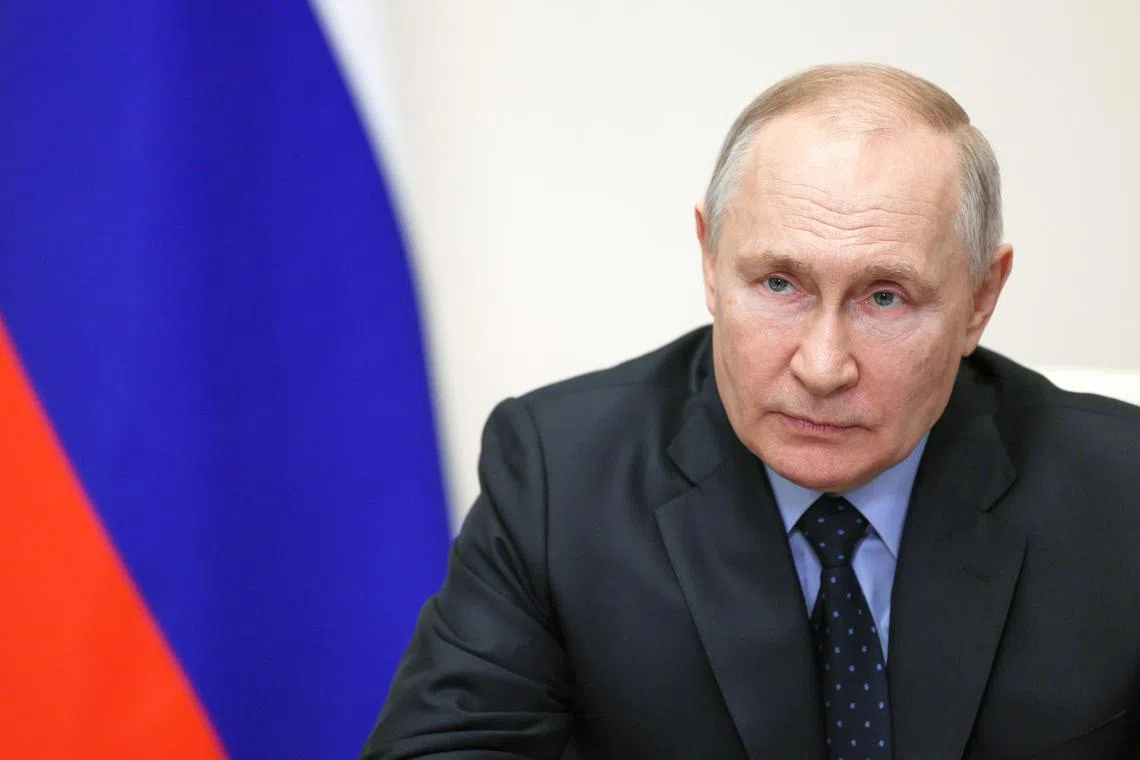Putin looks for positives as Russia's consumer demand, industrial output slide
Sign up now: Get ST's newsletters delivered to your inbox

Russia’s low unemployment is evidence of a labour shortage which has become more pronounced since Mr Putin ordered a partial mobilisation of troops in 2022.
PHOTO: EPA-EFE
MOSCOW - Russian President Vladimir Putin on Wednesday pointed to record low unemployment and marginally higher real wages as evidence of a gradual economic recovery, although data showed that consumer demand and industrial output dropped in February.
Russia’s export-dependent economy proved unexpectedly resilient in the face of tough Western sanctions in 2022, but a return to pre-conflict levels of prosperity may be far off as more government spending is directed towards the military.
Data from the Rosstat federal statistics service showed that unemployment dropped to 3.5 per cent in February, a record low, while real wages, which are adjusted for inflation, rose 0.6 per cent in January.
Retail sales, a key gauge of consumer demand, fell 7.8 per cent year on year in February, while industrial output dropped 1.7 per cent.
“Unemployment in Russia remains at a record low level, however this does not mean that all problems on the labour market are already resolved,” Mr Putin told a government meeting, mentioning issues around the quality of some jobs and specific regions where unemployment is above average.
Russia’s low unemployment is evidence of a labour shortage which has become more pronounced since Mr Putin ordered a partial mobilisation of troops in September others fled the country to avoid being drafted.
The central bank has developed a more hawkish stance in 2023, warning that Russia’s widening budget deficit and the labour shortages pose ongoing inflationary risks.
Mr Putin and other Russian officials have used small rises or only limited falls in economic indicators to extol Russia’s resilience in the face of Western sanctions, proudly pointing to a gross domestic product contraction of just 2.1 per cent in 2022 as evidence of this.
But that decline, combined with double-digit inflation, meant that real disposable incomes fell 1 per cent in 2022, according to Rosstat, with real wages only now starting to pick up again.
“The population’s wages and real disposable incomes have again started growing in real terms in the country as a whole,” Mr Putin said.
“Yes, for now these are very modest figures, but they are there.” REUTERS


